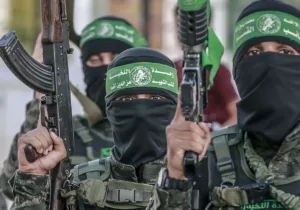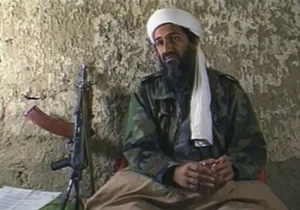It’s impossible not to think of our British friends these last pair of days. However often these attacks occur, even if, God forbid, they were to become what we would call “routine”—they are still jolting. They ought to be. While, given the conditions of our world and the witness of history, such attacks against the innocent ought never again to surprise us, I do hope they continue to shock us. We ought to be shocked by such assaults—shocked and moved to action, defensive and offensive, hard and soft. We also ought to go about our lives with increasing sobriety. As one English friend suggested to me when I inquired about his welfare, we are reminded “that our vulnerability cannot be removed, even if it can be diminished.”
The details of yesterday’s attack fit familiar patterns. The assailant was a national, here a British citizen. He had been under investigation by national security forces, here MI5, for extremism. His weapons were singularly unsophisticated. Having rented a vehicle, he left the roadway at Westminster Bridge and careened along the crowded sidewalk. He crashed into the gates at the Parliament building, then exited with kitchen knives and murdered one police officer before being mortally wounded by a second officer, this one armed. As of this writing, two other innocents were murdered, including a woman walking on her way to pick up her children from school. In addition, a multitude of pedestrians were injured, some to degrees described as “catastrophic” and “life-changing.” While graphic-imagination is left to decipher what that might mean, common-sense realizes that, in actuality, everyone on that bridge during the attack has suffered a life-changing injury.
A part of the sick genius of terror is that it is, well, terrifying. There’s a reason many of their attacks occur in iconic locations like Westminster Bridge. Anyone who has been to London has likely walked across that bridge on their way to see the Parliament buildings or Big Ben. I myself was there this past November. By attacking iconic locations, the terrorists are able to touch more than those who are actually present. They forge links in the minds of the many who have memories of those places. They place us, however distantly or vicariously, on the scene. We are made to realize: but for the serendipity of timing, that could have been me. Similarly, when the terrorists attack non-iconic but rather quotidian places—cafes, boardwalks, holiday markets—they remind us that no place is safe, that our everyday lives are always under threat.
Here we ought to remember a Brit in a generation past who often pondered what life under threat was like. In his stirring essay “On Living In An Atomic Age,” C.S. Lewis wrote of the bomb like he might have written about terror:
In one way we think a great deal too much of the atomic bomb. ‘How are we to live in an atomic age?’ I am tempted to reply: ‘Why, as you would have lived in the sixteenth century when the plague visited London almost every year, or as you would have lived in the Viking age when raiders from Scandinavia might land and cut your throat any night; or indeed, as you are already living in an age of cancer, an age of syphilis, an age of paralysis, an age of air-raids, an age of railway accidents, an age of motor accidents.
We mustn’t, Lewis urged, exaggerate “the novelty of our situation.” We have all been sentenced to death already, long before being marked for terror attacks. This is not a call to complacency—anyone who has read Lewis knows that. On the issue of war, he was ever the Augustinian—some enemies need to be fought. We have such now, and Lewis would have recognized that. In the meanwhile, he would also have urged us not to forget to live the lives we are fighting to protect. In the following, I change “atomic bomb” for “terror attack”.
If we are all going to be destroyed by [a terror attack], let that [attack] when it comes find us doing sensible and human things—praying, working, teaching, reading, listening to music, bathing the children, playing tennis, chatting to our friends over a pint and a game of darts—not huddled together like frightened sheep and thinking about [terror attacks]. They may break our bodies (a microbe can do that) but they need not dominate our minds.
I pray for strength, safety, and courage for our British friends today, and always for all of us in the continued fight ahead. Keep calm, and carry on.
—
Marc LiVecche is the managing editor of Providence. This post originally appeared as the Providence weekly newsletter. To sign up for free, subscribe here.
Image: The Palace of Westminster at night as seen from the opposite side of the River Thames. Photo by DAVID ILIFF. License: CC-BY-SA 3.0. This image was selected as a picture of the week on the Malay Wikipedia for the 48th week, 2009. wikimedia commons.






